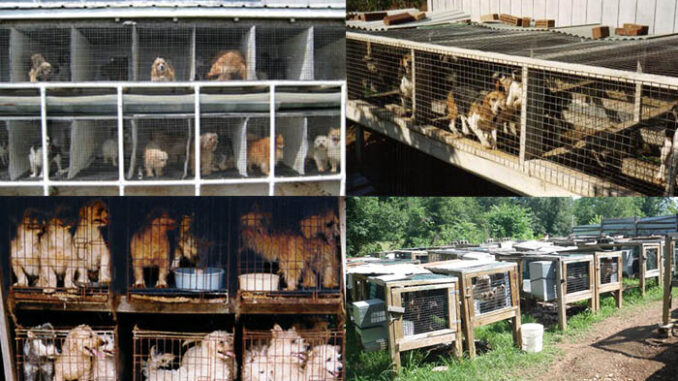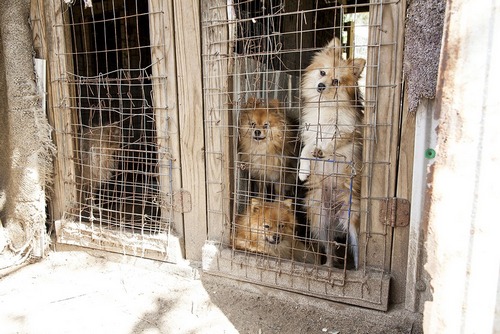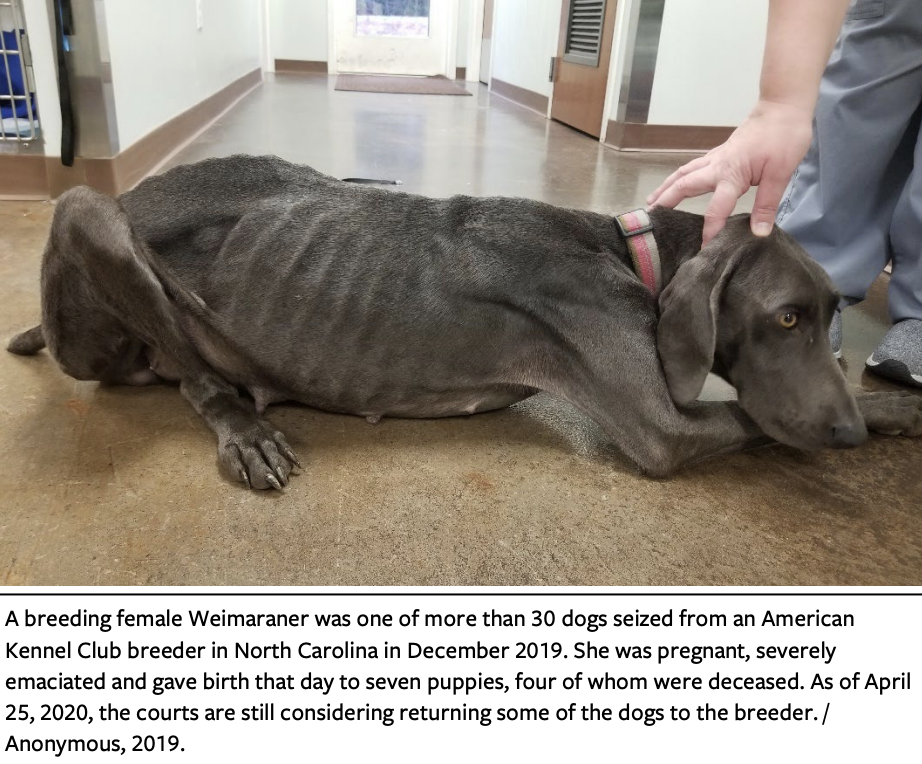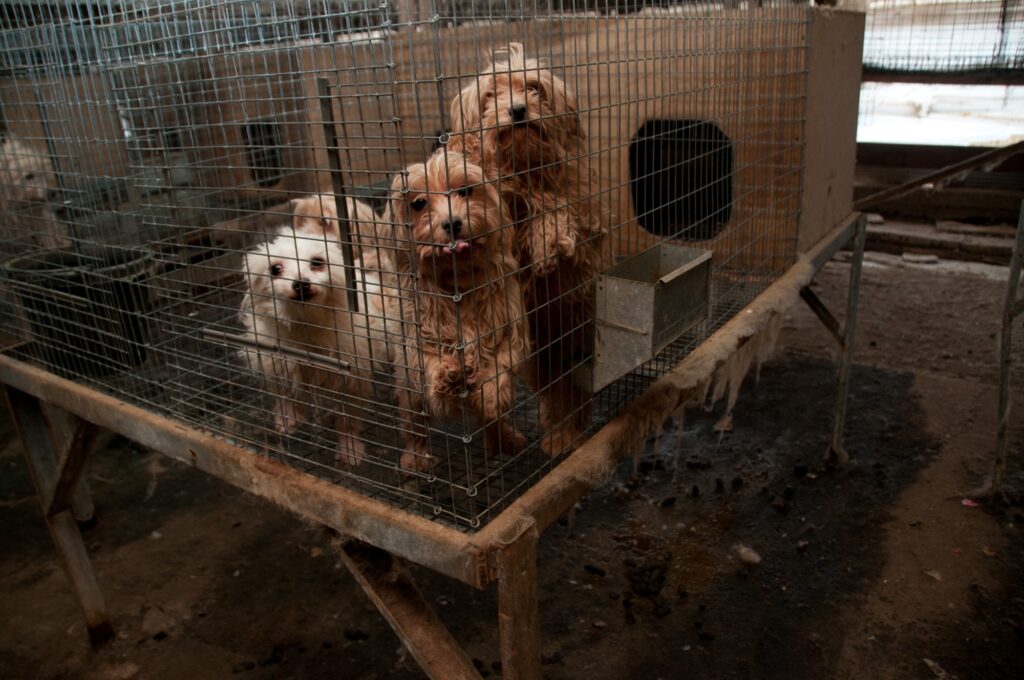
Photo Credit, Steve Dale
Steve Dale is a certified animal behavior specialist and author. Dale is a founder of the CATalyst Council and served on the Board of Directors from 2008 to 2012. He’s also on the Board of Directors of the Winn Feline Foundation, and Tree House Humane Society in Chicago. In 2012, he cycled off the Board of the American Humane Association and served as a National Ambassador.
Dale, “We adopted Hazel from the Animal Welfare League in Chicago. She was given up the shelter, we’re told, because the owner died and no one in the family wanted her. It’s possible she was purchased at a pet store and therefore born in a mill. But we don’t know that.”
Puppy mills are a very well kept secret of the pet industry. The reality of puppy mills is like the “dark web”. Let's go into this further, all types of dogs are bred at this facility and are kept in very poor conditions. It’s standard practice to keep the animals in poor conditions such as cramped cages, filthy conditions, any health issues to the animals go unbothered and are left to suffer and no socialization according to PETA.
Let’s dive deeper… The cramped cages are not the normal metal cages you see at your local pet store. Puppy mill kennels consist of small cages made with wood and wire and even trailer tractor chains attached to trees leaving the dog out at all times no matter the weather condition. Many mother dogs and their litters suffer from malnutrition and no veterinary care at all according to PETA.
Photo credit, Google Images
The puppy mill industry breeds female dogs as much as they can until the female dog can not produce any more litters at which point the female dog is either killed or auctioned off. Many people do not realize that they could be supporting the puppy mill industry as puppy mills do provide dogs to some pet stores as well the “breeders” could manipulate the buyer by telling them a sad story of the dog's past.
Dale, “Puppy mills also sell to pet stores, often through second and third party brokers, and increasingly the source of those puppies (and in some cases kittens) are difficult to trace and that’s no coincidence.”
An undercover investigator worked for nine months at Nielsen Farms, a puppy mill in Kansas City. It was revealed that the puppies had no bedding, no veterinary care and no protection from the cold or hot weather. Many of the dogs were ill, especially puppies who are more susceptible to death. “Investigators have observed dogs circling frantically in their small cages and pacing ceaselessly back and forth, oblivious to anything around them—their only way of coping with despair.” A quote made by PETA
Image credit, Steve Dale Pet World
Many risks are involved when buying from a puppy mill. Mills breed the dogs for quantity, not quality, which puts the puppies at high risk for genetic defects that could be life threatening. Having genetic defects can get expensive to take care of the dog and many owners end up abandoning their dog when they can no longer care for it. As well, breeding constantly regardless of the breed mix can cause the dog to be very aggressive and not trustworthy after everything they endured at the puppy mill.
This was Dale's views on puppy mills, “For starters dogs in mills are merely breeding machines, bred to death – literally. Once dogs can no longer breed, they are no longer useful. Generally, at that point they are euthanized, and not so humanely. The dogs receive no veterinary care, and minimal human interaction. They are not shown love. Their welfare is awful, kept in clearly inhumane conditions. When mills are raided very often law enforcement and rescuers require wearing gas masks because that is how bad the smell of feces and especially urine is. Shockingly some of these places have actually passed inspections. You hardly need to be an expert in animal welfare to note how bad off the dogs there are as a result, their coats are matted with urine and even feces. As a result the dogs, of course, are more likely to become ill – not only from the lack of care but from the day to day 24/7 anxiety.”
Dale goes on to talk about the dog sales going up because of COVID, “Pet store sales of puppies are up, and a primary source of pet store dogs are the so-called puppy mills. Not sure if this means more mills or just those that are out there are celebrating their good COVID fortune. Over 90 percent of people consider their dogs family members, and half of all dog parents share their beds. How can we ethically (not to mention legally) support such inhumane treatment?”
Photo credit, Google Images
Now this question arises, is “backyard breeders” worse than puppy mills?
The answer is yes. An amateur dog breeder is just as unethical as any puppy mill but of course on a smaller scale. An amateur breeder can breed dogs with health problems just as puppy mills. A lot of backyard breeders want to make a quick buck, therefore over breeding can happen and over population just as puppy mills do. Proper veterinary care could also be missing but in this case the breeder just cuts down the price of the dog.
This was Dale's opinion on backyard breeders, “those who breed one or two maybe three litters a year, and breed only one or maybe at most two breeds….and show their dogs in conformation dog show care about what they are doing – they know about what they are doing. And care about the genetics, so try as they might to breed for good health and temperament. I have no issue with responsible American Cocker Spaniel or Yorkshire Terrier breeders or any breed. I like that you don’t call puppy mill “breeders” breeders – they factory owners, who don’t consider dogs anything but a financial commodity. In addition be careful where you purchase online. Anyone can set up a cool-looking website, even people operating puppy mills. It’s ideally best to visit where you are purchasing that dog from in person. Puppy mills, of course, don’t allow anyone on the property.”
Photo credit, Google Images
To conclude, many people do not do as much research as they should be doing and in the long run it only benefits companies like puppy mills. If no one bought-puppy mills would go out of business. Dale, “Never buy a dog (or cat) from a pet store. Absolutely adopting from pet stores from legit shelters or rescues is just fine, not the same as buying.”








Be the first to comment